Remote Management & Overcoming Disruptive Environmental Threats
Course Overview

In today’s complex and changing environment, what successful leaders must do hasn’t changed. What’s changing is how they must do it. As Environmental Threats are growing fast, virtual & remote teams are witnessing a massive increase and managers are facing new challenges in building and sustaining high performance teams in such settings.
Nowadays successful companies demand their managers not only to attend to their managerial duties, but also to be occupied with one of the most important skills for the future, that is Remote Management and Overcoming Disruptive Environmental Threats.
For example, with the current threat of coronavirus ‘COVID-19’, agile companies like Facebook, Google. etc. did not cancel projects and stop their work. Instead they looked to see what is in their collaboration toolbox to keep workers healthy and productive, and at the same time continue their business by successfully renewing focus on collaboration and remote management.
Therefore, Managers must put in extra efforts to learn the essential skills of remote leadership to overcome any Disruptive Environmental Threats and learn to foster a positive team dynamic, while that teams feel connected to the company’s culture and the business in general, to drive better business outcomes. The Leap To Success 2- days Remote Management and Overcoming Disruptive Environmental Threats program has been designed for businesses wishing to have agile Managers who enhance and develop remote team dynamics to communicate effectively, stay aligned, and achieve desired goals. This course gives Managers the key skills and techniques needed to build and lead a High-Performing Remote Team who are based in various locations, to deliver their best results.
Goal of Course:
Remote Management and Overcoming Disruptive Environmental Threats offers participants learning and developing in two levels, Micro level through personal leadership development and macro level by Making positive change in their organization and its business.
Through this Interactive and engaging learning experience, managers will be able to translate the remote leadership concepts and best practices into a practical language that will help them start applying the concepts immediately.
Duration:
2 days
Language:
English
Training Objectives
- Define Effective Remote Leadership.
- Gain an understanding of growing Disruptive Environmental Threats.
- Identify all the challenges and opportunities faced when managing remotely.
- Explore tactics and tools to overcome these challenges and utilize its opportunities.
- Identify the key leadership skills required when managing remotely.
- Learn to create and nurture a remote culture that allows your virtual employees to thrive.
- Optimize your team’s virtual communication techniques and channels to ensure they are effective and consistent.
- Manage your remote team’s performance based on outputs and result.
- Gain the skills to manage conflict in distributed and remote hybrid teams
- Articulate and communicate the vision for the future success of your remote team.
- Learn to lead your team through changes in a remote environment.
- Learn to coach remotely and build a solid foundation to provide feedback virtually.
- Communicate remotely in the most efficient ways possible.
- Learn steps to build trust, and develop open lines of communication.
- Develop and implement communication systems and processes.
- Learn strategies and facilitation techniques for building great remote teams.
- Use a number of techniques to manage and maximize the performance of remote team members.
- Provide Performance Feedback.
- Learn ways to keep your remote team engaged and motivated.
- Create and maintain motivation and team spirit within remote working environments.
Module Outlines
Module 1: The Growing Need for Remote Management
- Why the need for remote management?
- Disruptive environmental threats defined
- Awareness and control in times of threats
- Impact of disruptive environmental threats on the business
- Scenarios – Possible solutions to reduce disruptive environmental threats’ impact
Module 2: Remote Management Overview
- What is remote Management?
- Traditional office environment vs. virtual environment
- Characteristics of successful remote management
- Remote management misconceptions
- Remote management challenges and opportunities
- Tactics and tools to overcome challenges and utilize opportunities
Module 3: Managing the Business through Disruptive Environmental Threats
- Assessment: How ready is your business to lead in growing threats
- Business responses in disruptive environmental threats
Remote working strategies - Employees’ distribution strategies
- Supply Chain, inventory and resources management strategies
- Customers and partners remote management
Module 4: From Management to Leadership
- How remote leadership can benefit you and the company
- Identifying the behaviors, skills and qualities of highly effective remote Leaders
- Leading change in a remote environment
- Creating and nurturing a remote culture that allows remote teams to thrive
- Vision – Mission articulation and communication for the future success of a remote team
- Approaches used to successfully lead and manage remote teams
- Identifying skills and technology requirements
Module 5: Building a High Performing Remote Team
- Defining the type of teams managed remotely
- Factors required for a high performing remote team
- Setting Clear Expectations
- Clarifying roles and responsibilities
- Common stages of team development
- Understanding and managing each stage of Team Development
- Understanding the emotional, psychological and physical requirements of remote teams
- Creating team spirit and trust
- Managing conflicts in remote hybrid teams
Module 6: Remote Team Communication
- Team’s virtual communication techniques and channels
- Identifying and overcoming the barriers to effective remote communication
- Proactive communication practices amongst teams
- Planning when and how often to communicate
- Key communication skills to facilitate effective meetings for remote teams
- Selecting the appropriate technology for specific types of tasks
Module 7: Accelerating Performance through Remote Coaching
- Effective Goal Setting
- Coaching from distance – tools and techniques
- Behaviors and barriers associated with being an effective coach
- Providing effective feedback to the team and individuals
- Building team members’ skills through remote coaching
- Measuring and managing remote teams’ performance
- Delegation and accountability
Module 8: Motivation & Engagement
- Recognizing the levels of engagement
- Increasing engagement in a remote Team
- Using goals and objectives to motivate remote teams
- Actions that motivate vs. actions that demotivate
- Supporting the learning & development goals within remote team
Customized Learning
Leap To Success is offering a variety of learning options to meet current realities and can be adapted to suit your business needs. These options include variants of online, blended and on-site course formats.
Face To Face Learning
Enabling you to have a face to face interactive and engaging learning experiences led by renowned industry experts and thought leaders with extensive practical experience who will employ a variety of interactive learning techniques, including short high-impact videos, case studies, assessments, role plays ,in addition to on-going support.
Virtual Learning Labs
Interactive online learning held in real-time using Zoom and are led by international subject matter experts who incorporate case studies, breakout rooms, guided practice, simulations and discussions to maximise your learning experience.
General Methodology
Similar to any L2S training program, this program offers an interactive learning experience in which will allow the delegates to reflect on their learning through an informative, indulging, and fun classroom experience. The design of the training session focuses on the following attributes.
Concrete Experience: The delegates will learn by doing
Reflective Observation: Reflecting on the newly experienced skill-set
Abstract Conceptualization: Developing deeper understanding to the learned concepts
Active Experimentation: Providing the delegates with realistic tools that can be tested in the real life
Sign Up For the Course
